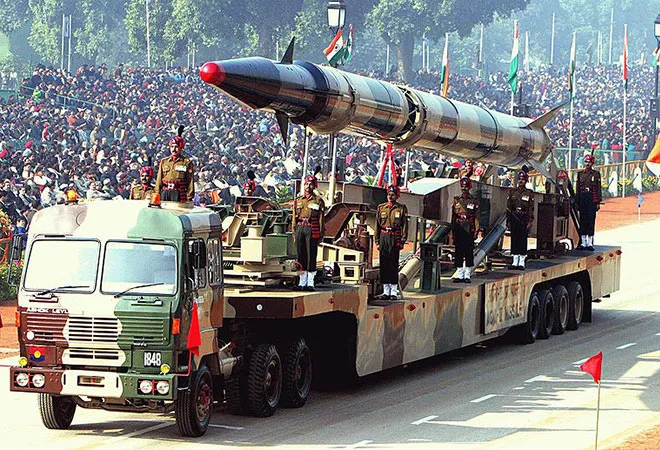
Nuclear-armed states have no intention of abandoning the atomic bomb as part of their military strategy, according to experts, following the Nobel Peace Prize committee’s call to avoid weakening the nuclear “taboo.”
The committee awarded this year’s peace prize to Japan’s Nihon Hidankyo, a grassroots movement of Hiroshima and Nagasaki survivors advocating for a nuclear weapons ban, on Friday, stating that the atom bomb attacks on both Japanese cities in 1945 had resulted in a “nuclear taboo” that had, however, come under “pressure” since.
While none of the countries possessing nuclear weapons have used them in war since 1945, the implicit or even explicit threat to do so is part of their arsenal.
Moscow has repeatedly brandished the nuclear threat in a bid to dissuade the West from supporting Ukraine, which has been fending off Russia’s invasion since February 2022.
According to Alexander Gabuev, Director at the Carnegie Russia Eurasia Center, it was “no coincidence” that Russian President Vladimir Putin made a nuclear threat on the eve of a meeting between US President Joe Biden and Ukraine President Volodymyr Zelensky about Kyiv’s possible use of missiles capable of striking Russian territory.
The Nobel committee wanted to send “a strong signal” to Russia, said Bruno Tertrais, political scientist at France’s Strategic Research Foundation.
Russia, he said, had “normalised”, even “trivialised”, talk of a nuclear weapons use since its invasion of Ukraine.
The Kremlin is not alone.
North Korean leader Kim Jong Un said last week his country would use nuclear weapons “without hesitation” if attacked by South Korea and it ally, the United States.
And in the Middle East, Israel, the region’s only nuclear-armed state, has vowed a “deadly, precise and surprising” response to Iran’s direct strike on Israeli territory on October 1.
– ‘The logic of deterrence’ –
Tehran, meanwhile, has significantly ramped up its nuclear programme and now has enough material to build more than three atomic bombs, according to the International Atomic Energy Agency (IAEA).
Tehran insists its nuclear activities are entirely peaceful and designed to produce energy.
“The logic of deterrence is firmly entrenched in countries that have nuclear weapons,” said Tertrais, adding however that the risk of atomic bomb use “is no greater now than five years ago”.
Standard nuclear doctrine — developed during the Cold War between super powers the United States and the Soviet Union — is based on the assumption that such weapons will never have to be used because their impact is so devastating, and because nuclear retaliation would probably bring similar destruction on the original attacker.
This is why China has never given up its “no first strike” doctrine, said Lukasz Kulesa, Director of Proliferation and Nuclear Policy at the Royal United Services Institute (RUSI).
Other countries have also signalled that nuclear arms use would be a last resort while not ruling it out completely to maintain credibility in the eyes of opponents, said Kulesa.
But keeping a safe balance between threat and restraint can never be risk-free, he warned.
“There is always a possibility of failure. There is also a possibility of inadvertent escalation that can go all the way to the nuclear level,” Kulesa said.
Countries possessing nuclear weapons today are the United States, Russia, Britain, France, China, India, Pakistan and North Korea.
Israel is also widely assumed to have an arsenal of nuclear weapons, although it has never officially acknowledged this.





